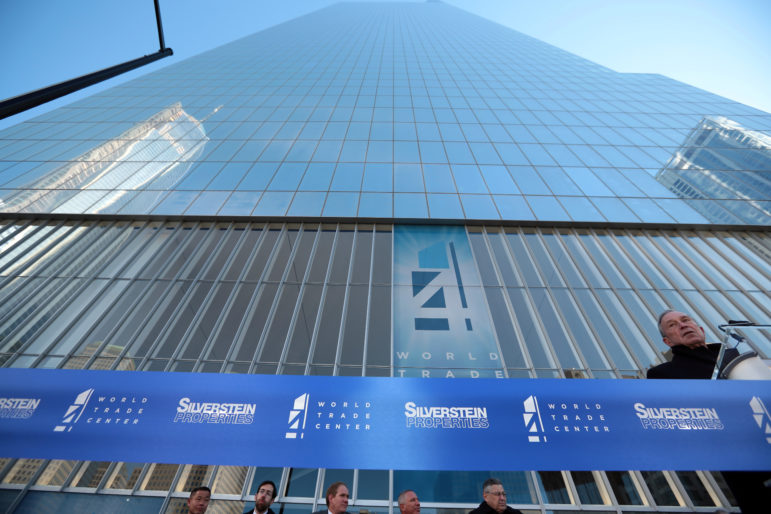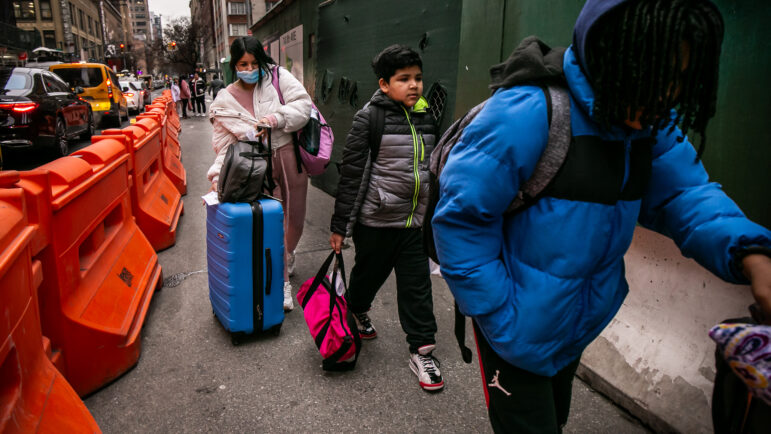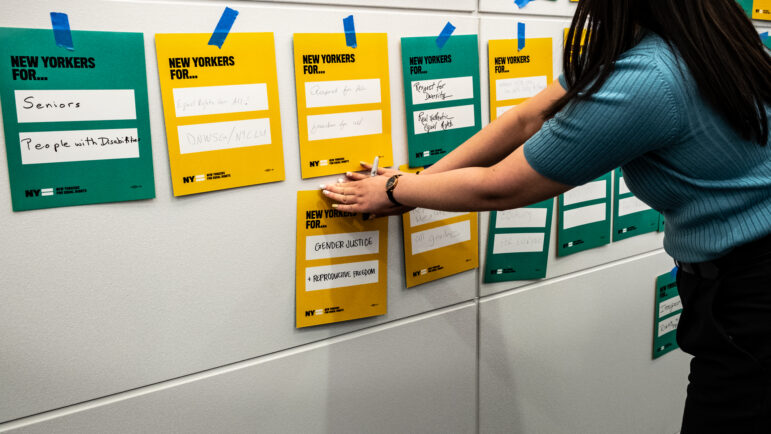‘Our city has long suffered from a lack of housing and mistrust from our elected officials. But by reaching out to people who disagree and remain circumspect of city proposals, I believe that a pathway to understanding and producing opportunities for working-class families is the connection to lower the rhetoric and find ways to work together.’

NYC Mayor’s Office/Edward Reed
Former Mayor Mike Bloomberg at a ribbon cutting at the rebuilt World Trade Center complex in 2013.
While attending community board meetings or public hearings involving rezonings or development, a familiar scene has been the questioning of people’s motivations, often by verbal insults traded between opponents and supporters of a proposed plan.
I noticed then and now that individuals were unwilling to listen to the real concerns of affected individuals and were quick to characterize them as a villain in order to drive their wanted narrative.
And I’m guilty of this.
I, unsuccessfully, ran for City Council amid an emotional battle around rezoning NoHo/SoHo, where I have been a vocal proponent of the mayor’s plan to allow more housing, notably affordable housing, to be built in a neighborhood that has access to some of the best schools our city has to offer.
For me, that is where my focus has always rested—with working families. My motivation to speak out in favor of a locally/politically unpopular position derives from my experience. My family and I did not grow up with resources or in a nice town, so when my siblings and I reached school age, my parents broke the law to send us to better schools in a neighboring town to ensure we received a good education.
As an immigrant family, that provided us with an opportunity to learn from students and families far more well-off than we were. The experience exposed us to varying professions and guidance on our friends’ parents’ journey to success. Direction we applied when attending college and beginning our professional careers and stories that would typically be unavailable to a family like mine if it were not for what my parents did.
After my Council campaign ended, I continued my advocacy for rezoning NoHo/SoHo by engaging with proponents of the plan, organizations like OpenNY, and individuals who opposed it.
 CityViews are readers’ opinions, not those of City Limits. Add your voice today!
CityViews are readers’ opinions, not those of City Limits. Add your voice today!
What I learned from these conversations is the genuine nature of their stance. For proponents, they see an affordable housing crisis that has condemned New York City to generations of rising rents that have pushed working-class and middle-income folks further away from where they work, contributing to various social ills. For opponents, they have experienced years of mistrust and empty promises from a city where idealistic goals are espoused and have never come to fruition. Instead, they have seen multiple mayoral administrations capitulate to developer interests that rapidly change the makeup of a neighborhood where they’ve lived a lifetime of experiences.
Each is correct. And the recognition that advocating for improvements to initial city plans can produce the change they want to see.
But where does the commonality exist between caricatures of “developer shills” and “old white people who refuse change”?
My bet is with working families.
Currently, Five World Trade Center is projected to create 1,325 apartments, of which 330 are affordable under the city’s Mandatory Inclusionary Housing (MIH) program.
That is not enough.
Traditional groups and individuals who have opposed each other should band together and support increasing the number of affordable units for this project. Additionally, the same developer owns the site of 2 World Trade Center, and I believe an opening exists due to behavioral changes caused by the pandemic in abandoning any plans to use that site for office space and instead converting it to a mixed-use site that includes housing.
The potential amount of housing produced at both sites, especially affordable housing, will positively impact working-class families by making good schools available, allowing access to a transit-rich area, and reducing rent burdens with the influx of new housing.
Our city has long suffered from a lack of housing and mistrust from our elected officials. But by reaching out to people who disagree and remain circumspect of city proposals, I believe that a pathway to understanding and producing opportunities for working-class families is the connection to lower the rhetoric and find ways to work together.
Let us begin with Two and Five World Trade Centers.
Denny Salas is a former candidate for City Council and continues to advocate for increasing affordable housing, pedestrianizing NYC streets, and eliminating structural inequities.








